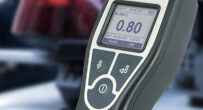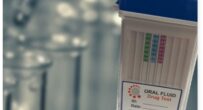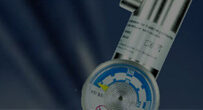Personal Breathalyser Dos and Don’ts to Consider
A personal breathalyser is a useful tool for monitoring blood alcohol concentration (BAC) and ensuring you stay within safe and legal limits. With more people recognising the value of these devices for promoting responsible drinking, the proper use and maintenance of a personal breathalyser have never been more important. At Breathalyser Sales & Service, we believe that understanding the dos and don’ts of personal breathalyser usage is essential for achieving accurate results and extending the life of your device.

Breathalyser Dos
A few examples of key dos when it comes to breathalyser device care are as follows:
- Refer to the Manufacturer’s Instructions: One of the most important personal breathalyser tips is to always follow the manufacturer's guidelines. These instructions cover essential details about calibration, usage, and maintenance. Understanding how your specific breathalyser model operates will help you achieve the most accurate results. Always keep the user manual handy and refer to it whenever you have doubts about the operation of your device.
- Calibrate Frequently: Regular calibration is crucial for maintaining the accuracy of your breathalyser. Over time, sensors can drift, leading to inaccurate readings. We recommend following the manufacturer’s calibration guidelines, which typically suggest calibration every six to twelve months. Regular calibration ensures that your breathalyser device consistently delivers precise BAC readings.
- Use Correctly: To obtain accurate BAC readings, it's essential to use the breathalyser correctly. Always wait at least 15 to 20 minutes after consuming alcohol before taking a test. This waiting period allows alcohol to fully absorb into your bloodstream and prevents residual mouth alcohol from affecting the reading. Adhering to this rule is one of the best personal breathalyser tips for reliable results.
- Keep Clean: Maintaining the cleanliness of your breathalyser device is vital for its longevity and accuracy. Regularly clean the mouthpiece and the external casing using a soft cloth and a mild cleaning solution. This prevents the build-up of residue and contaminants that could interfere with readings. Proper storage in a dry, cool place also helps maintain its condition.
Breathalyser Don’ts
Some key don’ts with breathalysers include:
- Don’t Rely Solely on the Device: While a personal breathalyser is a valuable tool for monitoring alcohol intake, it should not be the only factor in deciding whether to drive or perform other activities. Understand your own limits and be aware that factors like fatigue, medication, and individual tolerance levels can impact your ability to function safely, even if the device indicates a low BAC.
- 2. Don’t Skip Calibration: Skipping regular calibration can lead to inaccurate readings, which defeats the purpose of having a breathalyser. Inaccurate results can lead to false confidence or unnecessary concern about your BAC. Regular calibration ensures the device remains a reliable tool for monitoring alcohol consumption.
- Don’t Use Immediately After Certain Conditions: Avoid using the breathalyser immediately after consuming certain foods or medications, or using mouthwash, as these can contain alcohol or substances that produce false positives. Waiting at least 15 minutes helps ensure that the reading reflects your actual BAC.
- Don’t Ignore Maintenance: Neglecting the maintenance of your breathalyser can lead to malfunction or damage. Regular inspections, cleaning, and calibration, as recommended by the manufacturer, are essential for ensuring the device continues to function properly. A well-maintained breathalyser is more likely to deliver accurate and reliable results.
Your Personal Breathalyser Tips
Using a personal breathalyser correctly involves understanding and adhering to a few key dos and don’ts. By following the manufacturer's instructions, calibrating regularly, using the device properly, and maintaining it well, you can ensure that your breathalyser provides accurate readings.
Avoiding over-reliance on the device, skipping calibration, using it under certain conditions, and neglecting maintenance are crucial steps in promoting responsible drinking and safety. Remember, a well-maintained breathalyser is not just about accuracy—it’s about making informed and responsible decisions.
You can count on Australia’s leading supplier of high-quality drug and alcohol testing equipment at Breathalyser Sales & Service for breathalyser device care and tips to keep you safe. Call 1300 999 200 or contact us online for more on personal breathalysers today!

 Breathalysers
Breathalysers
 Drug Testing
Drug Testing
 Combo Kits & Safety Products
Combo Kits & Safety Products
 Calibration & Services
Calibration & Services
 Stay Current with Our Latest Training Techniques
Stay Current with Our Latest Training Techniques